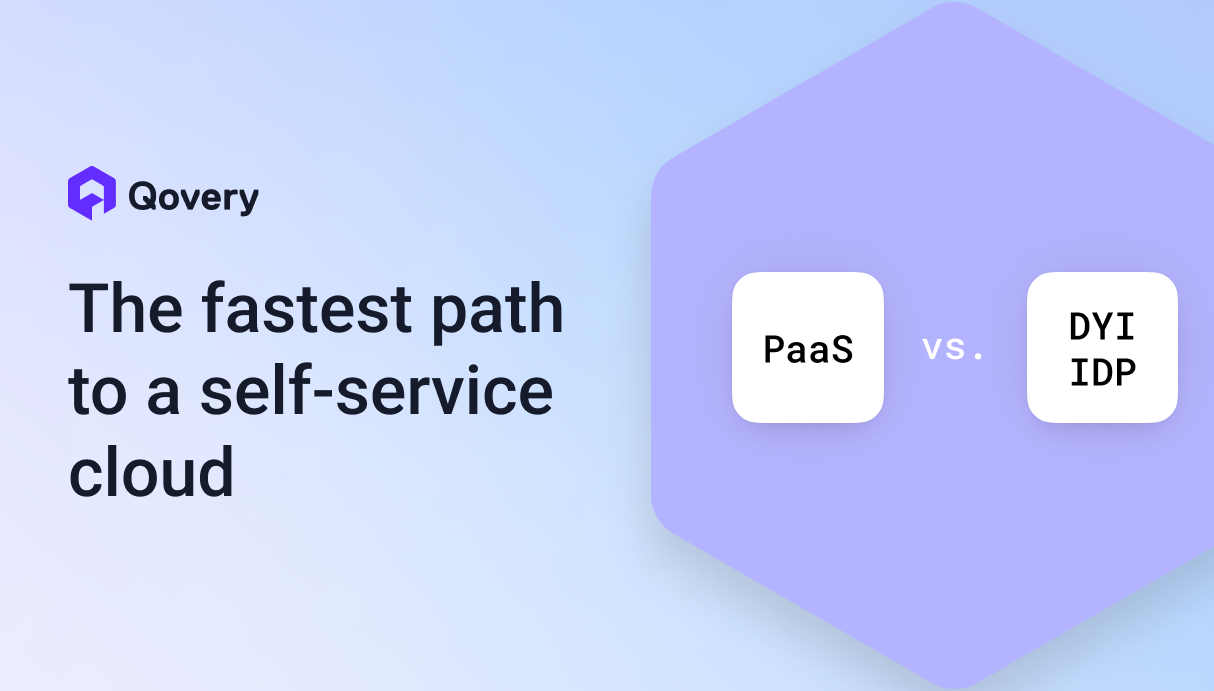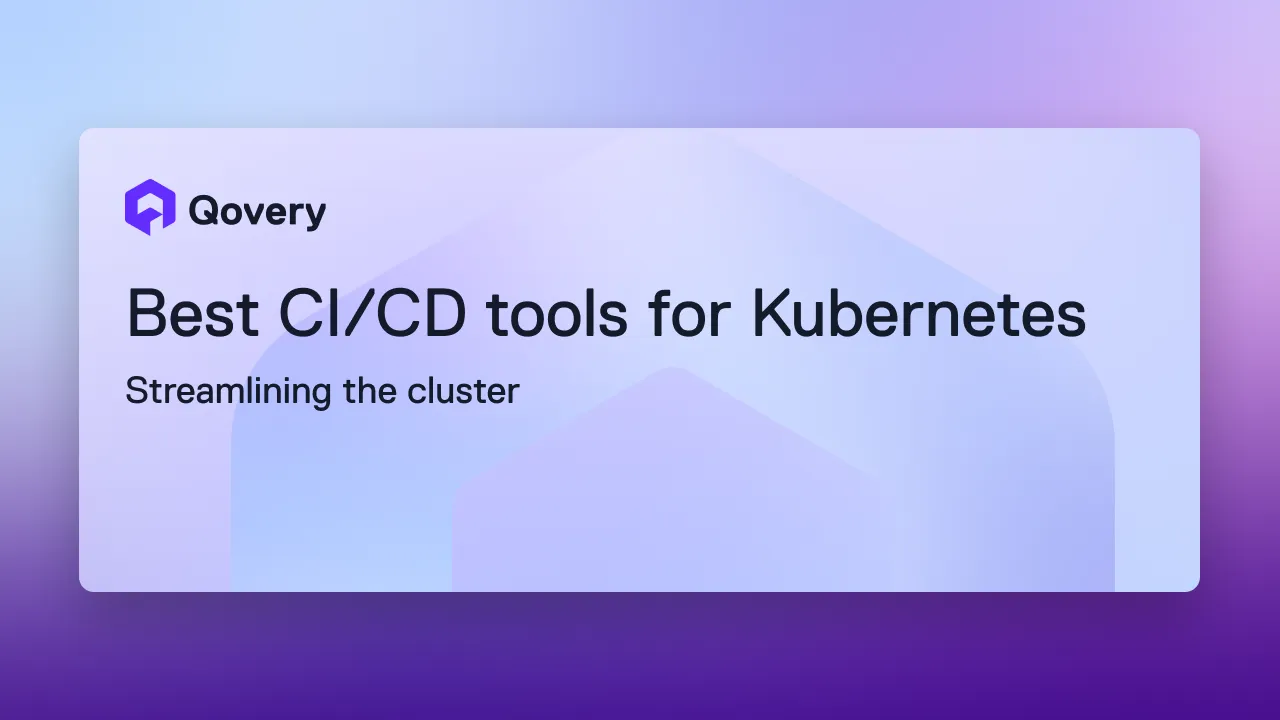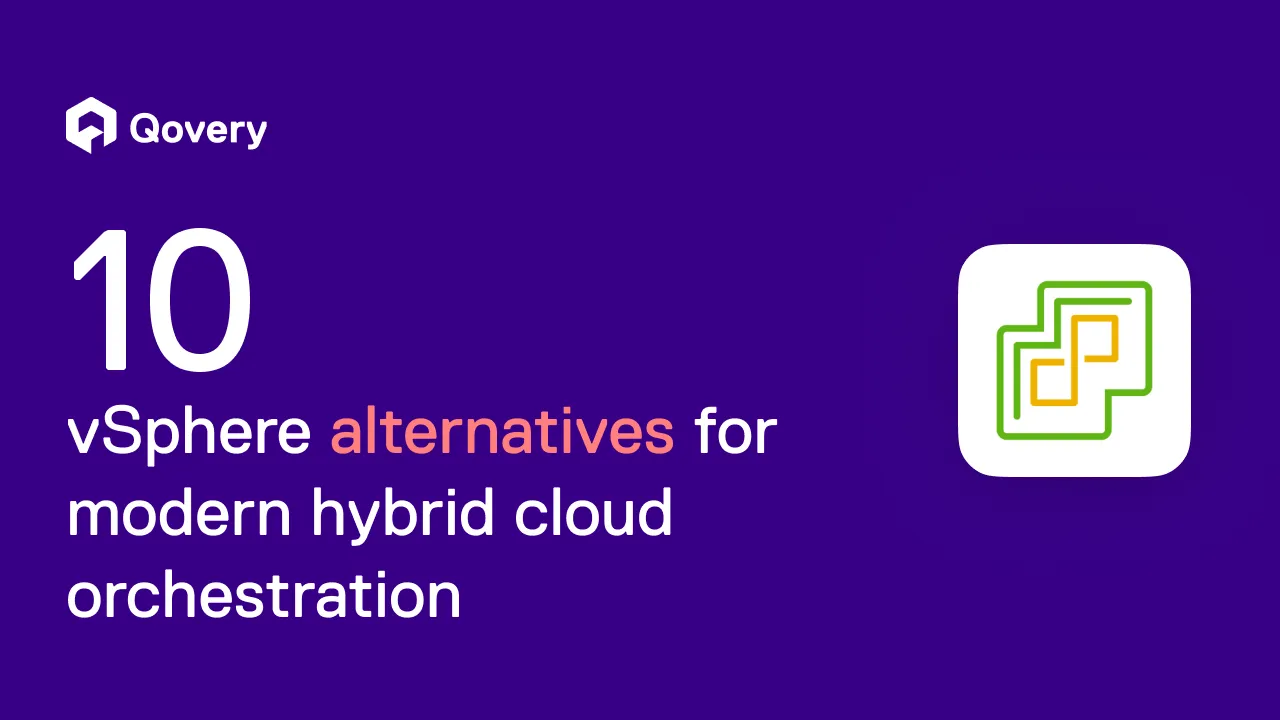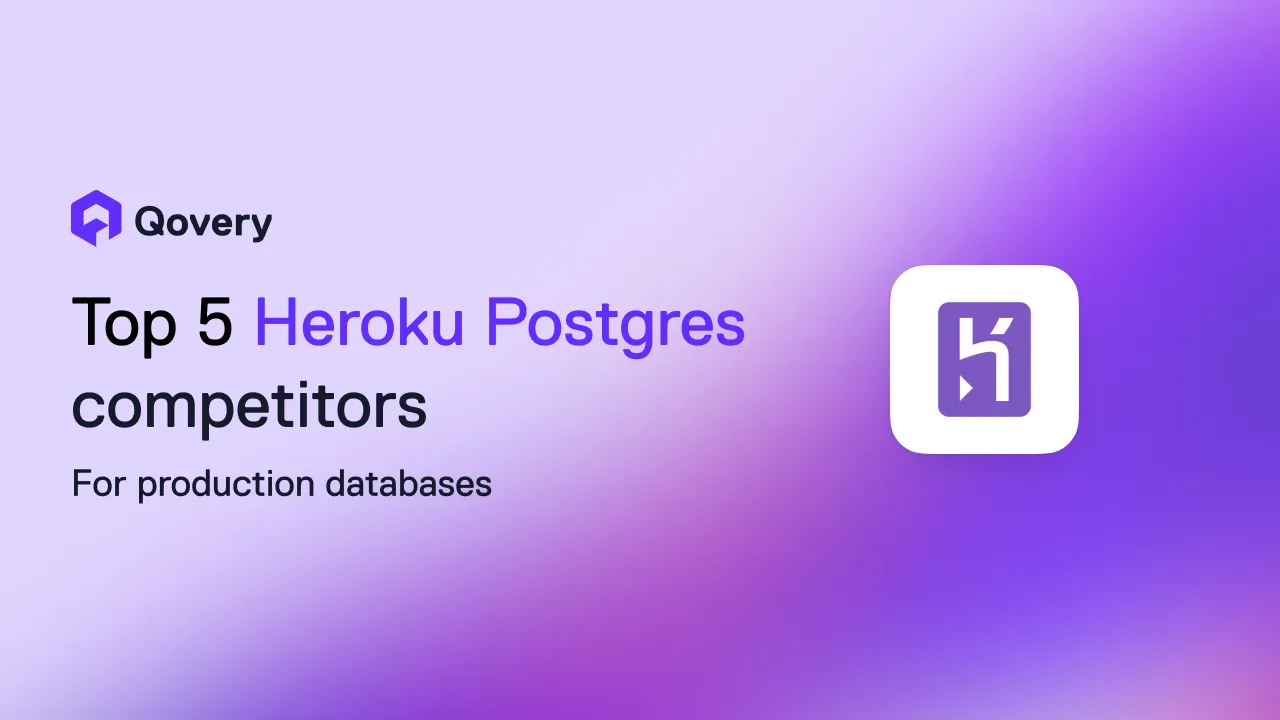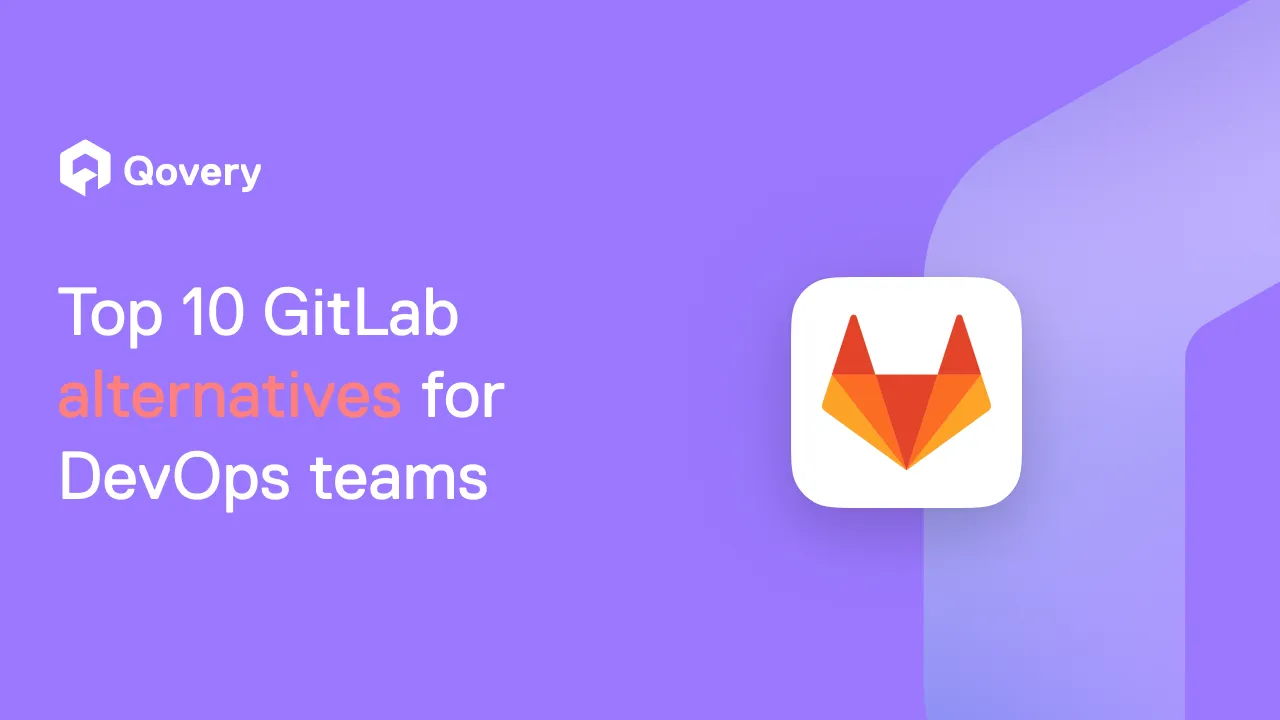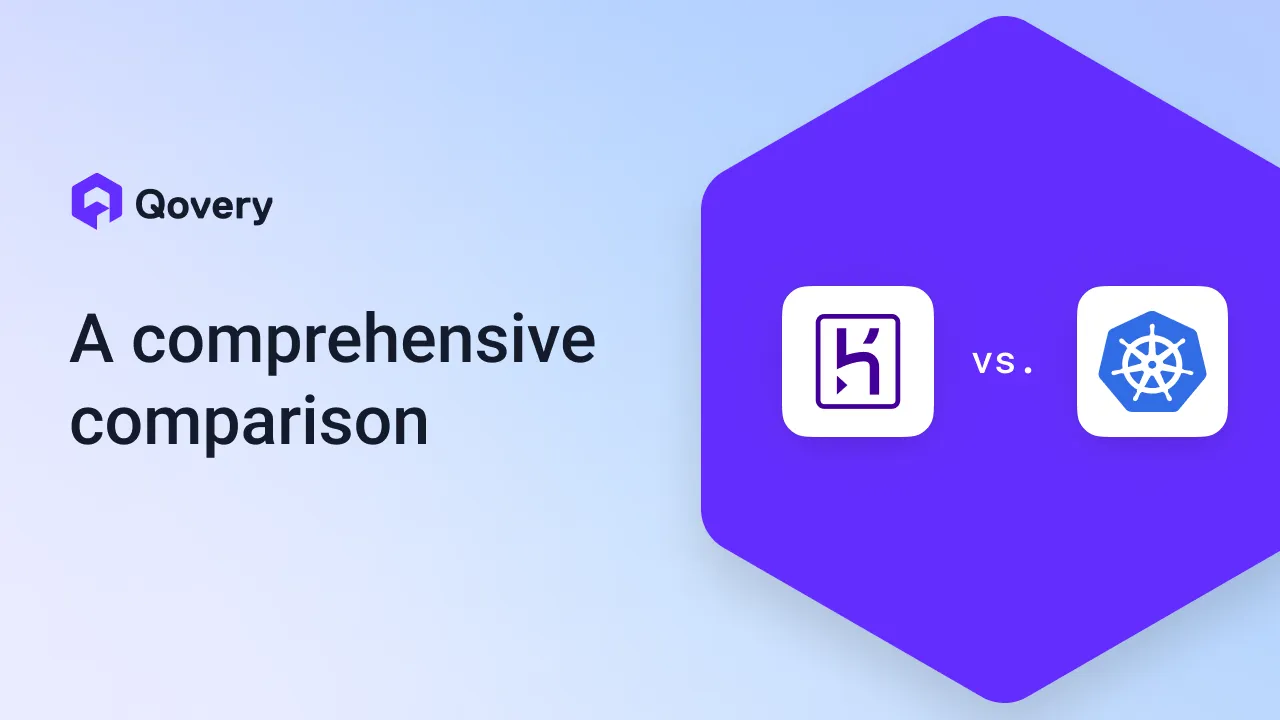


From Struggle to Success: How We Solve Common DevOps Challenges



What are DevOps Struggling With?
They Are Almost Always Understaffed
DevOps are understaffed for most organizations. We have seen that Qovery's customer organizations have, on average, 1 DevOps for 40 devs.
This can result in delays and missed deadlines, which can have a negative impact on the organization's bottom line. Additionally, an understaffed DevOps team may have difficulty maintaining and updating the organization's systems and infrastructure, which can lead to security vulnerabilities and other issues. This can seriously affect the organization, including data breaches and lost customers.
A solution could be recruiting more DevOps, but the issue is that it’s a job in demand, and it can be pretty hard to find one DevOps, let alone multiple ones.
Maintaining Consistency and Reliability Across Multi Environments
Managing multiple infrastructure environments is not a complex task since creating Terraform templates is possible. However, creating and managing multiple environments with containers and databases and making them easily usable by developers is very hard.
That’s why most DevOps engineers focus on managing multiple infrastructure environments instead of environments including applications and databases.
If a DevOps team is unable to maintain consistency and reliability across multi environments, it can have several negative impacts on the organization. For example, it can lead to issues with the quality and functionality of the organization's systems, which can result in customer dissatisfaction and lost revenue. Additionally, it can lead to difficulties in identifying and troubleshooting problems, as well as delays and missed deadlines.
Overall, the ability to maintain consistency and reliability across multi environments is essential for the success of any DevOps team, and organizations must invest in the necessary tools, processes, and support to enable their DevOps teams to achieve this.
A Hassle to Deliver Self-service Environments to Their Devs Team
DevOps often need to provide self-service environments to their development teams which can be done with the implementation of Preview Environments.
Self-service environments enable development teams to quickly and easily create the infrastructure they need for their projects, which can help them to stay focused on their core tasks. Without this ability, development teams may have to rely on operations teams to create and configure the infrastructure they need, which can lead to conflicts and misunderstandings.
Implementing Preview Environments required gluing products that are still immature to handle this feature correctly in traditional CI/CD platforms. Developers' skills are required, which is something only some DevOps engineers have. They will try to combine products like ArgoCD, Kubernetes, Terraform, and other tools, but it’s not enough since you need to interconnect those tools and react to external events coming from the VCS provider that they use. It’s out of their skills, and it is almost impossible for them to build this system without engineering effort.
Limited and Restrictive Tooling
Many pitfalls exist when it’s time to scale any project. There is no exception for DevOps engineering tools. DevOps engineering are understaffed and often reacts to people requesting more capacity and new services to be deployed to respond to business needs.
DevOps engineers are always in a mindset of “ticketing”. They wait for ticket requests from Engineering teams and supply the request. They are the bottleneck if they are flooded with requests. Most SaaS organizations have 1 DevOps engineer for 40 Developers; they need to share DevOps engineers across different squads since they struggle to hire more DevOps engineers.
One of the major impacts of having limited and restrictive tooling for DevOps is that it can slow down the software development process. Without access to the appropriate tools, development and operations teams may have to rely on manual processes, which can be time-consuming and error-prone.
Qovery: The Ultimate Solution for Modern DevOps Teams
Qovery is a self-service infrastructure platform to help DevOps engineers and Developers to collaborate better and solve the problem of organizations shipping slower features because of the shortage of DevOps engineers in the market.
Qovery provides an outstanding experience in managing complex infrastructure with multiple environments from a unified experience; I recommend you to take a look at this article, where we talk about some interesting architectures built on Qovery.

Key Components to Meet DevOps Needs
Speed
Speed is crucial for DevOps because it allows organizations to quickly and efficiently deliver software updates and improvements. This can reduce the time it takes to bring new features and fixes to customers, improving their satisfaction and loyalty. Additionally, being able to respond to changing business needs and customer feedback quickly can help organizations stay competitive and maintain a competitive advantage.
In just a few minutes, DevOps can install Qovery on their existing infrastructure and provide a self-service infrastructure platform to their engineering teams. This can be done with the web interface, Qovery Terraform Provider or the CLI.
Control and Governance
It is essential to keep complete control of what’s going on in the infrastructure and application side; that’s why Qovery acts like a “white box”.
Additionally, strong control and governance processes can help organizations meet compliance requirements and reduce the risk of security breaches or other issues.
With features such as Role Based Access Control (RBAC) allows you to control the access to your cluster and environment resources by defining and assigning roles to your users.
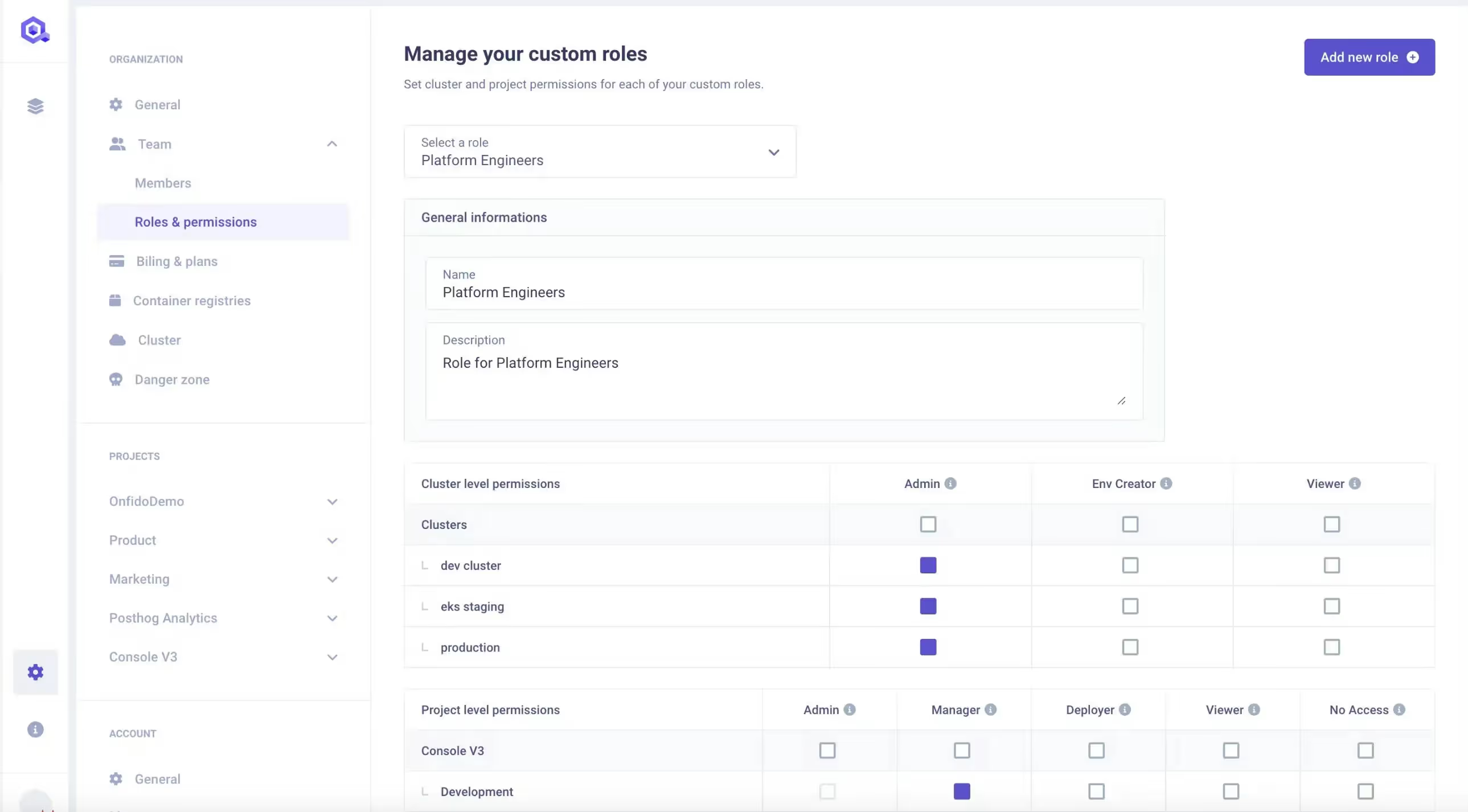
Security
Security is essential for the whole organization, especially DevOps since they are responsible for everything that runs on the infrastructure and where frequent changes and updates to the software can introduce new risks. They need to be able to know precisely what happens at any time, and they need to manage access to resources and keep control of the costs.
By prioritizing security in the DevOps process, organizations can reduce the likelihood of security breaches or other incidents, saving them time and money and protecting their reputation.
SSO or RBAC mentioned above is key to the company's safety, so you can avoid having someone break the prod, for example.
Flexibility
DevOps engineers need to be able to re-use what they have done so far with their scripts; that’s why we have the possibility to deploy any containers or even Cronjobs coming very soon.
Additionally, having a flexible DevOps process can make it easier for organizations to integrate new technologies or processes, which can help improve efficiency and productivity.
Wrapping Up
Despite a lot of knowledge and tools that DevOps can use in their day-to-day jobs, they still find themselves flooded with requests and can’t possibly resolve all the tickets that are coming to them. Whether it’s because they are understaffed, don’t have the Developer skills or don’t have the right tool, Qovery started a battle to help DevOps be proficient at their jobs.
To experience first-hand the power of Qovery's self-service infrastructure,
Sign–up here - no credit card required!

Suggested articles
.webp)



.svg)
.svg)
.svg)
